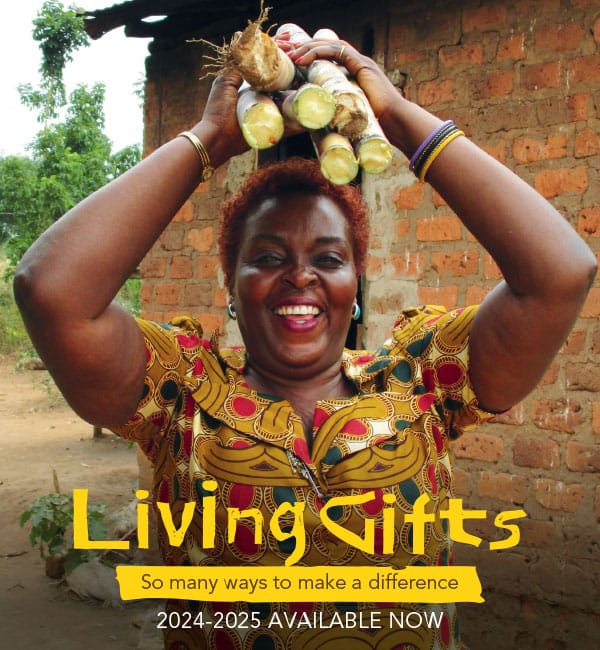Cambodia

QSA acknowledges the support of the Australian Government through the Australian NGO Cooperation Program (ANCP).

QSA acknowledges the support of the Australian Government through the Australian NGO Cooperation Program (ANCP).
Cambodia projects report 2023/24
QSA has been working with development partners in Cambodia since 1979 focusing on building food and water security and livelihoods, while at the same time promoting the empowerment of women, protection of children and other vulnerable groups and environmental protection.
We currently support five projects in rural Cambodia. The following project summaries are from the QSA Annual Report 2024. These projects (with the exception of the Peacebuilding, Kampong Chhnang project, are delivered in partnership with the Australian Government through the Australian NGO Cooperation Program (ANCP).
Khmer Community Development (KCD), Kandal Province
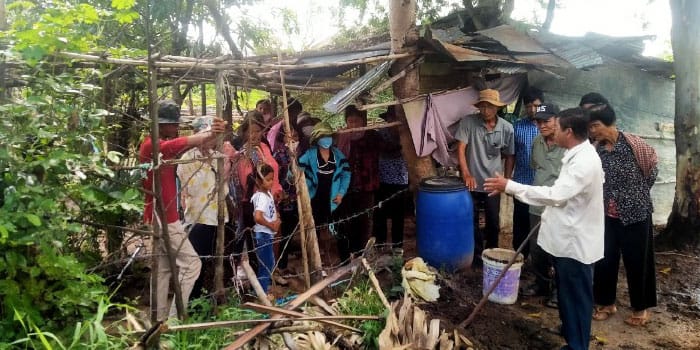
This three-year project focuses on community-driven development in nutrition, agriculture, gender equity, income generation, and environmental sustainability. By empowering target communities to identify their priority needs, KCD enables participants to implement successful projects that improve livelihoods, including home gardens, livestock management, and gender role sharing. This year, 381 households were assisted through agricultural activities, increasing food security, nutrition and income.
The involvement of men and local authorities in promoting gender equality was another critical feature of the project. KCD engaged with police, district government officials, and education directors to raise awareness about gender issues and encourage their support in building gender equality. The performance-based approach was a creative and effective means of addressing gender inequality, ensuring that both men and women could participate in the conversation and work towards meaningful change. Some villages reported that men’s attitudes had improved following participation in these sessions, including increased support for their wives and increased share of the housework.
Following an environmental campaign, local authorities have agreed to support environmental and climate change activities, and teachers have agreed to continue awareness-raising activities.
When additional funds became available, QSA supported KCD in undertaking capability-building in project planning and design (based on Forum Theatre techniques) to improve current and future project activities for women’s empowerment. This is part of longer-term planning to strengthen co-design methods to increase project impact and sustainability.
This project was delivered in partnership with the Australian Government through the Australian NGO Cooperation Program (ANCP), with QSA contributing $24,275 and ANCP $125,334. It involved 1,149 participants (603 women and girls) and 43 people living with disabilities.
Bunrany Hun Sen Development Centre (BRHS), Pursat Province
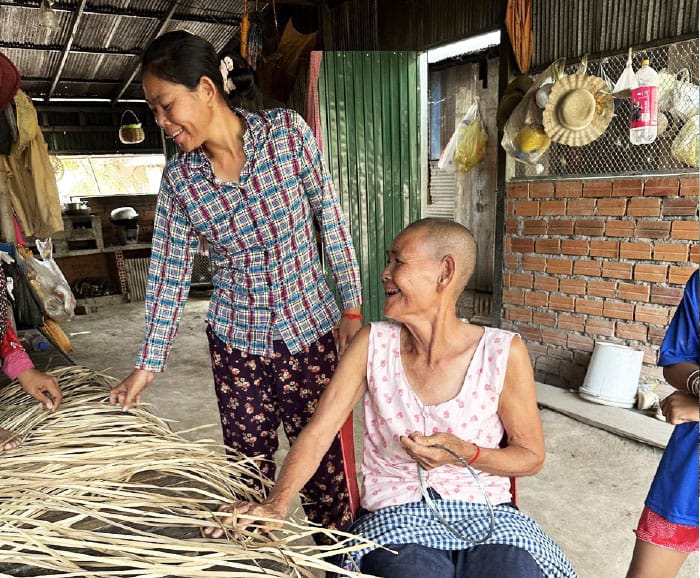
Training in grass mat weaving for older rural women Pursat, Cambodia (SOURCE: BRHS)
The Centre provides handicraft training for predominantly rural women, a production facility and commercial outlet, and assistance for farmers in increasing and diversifying their incomes.
The Centre faces marketing and sales challenges; change is needed to ensure its survival. The aim is to build capabilities and support transitioning to a more commercial, self-sufficient organisation.
A vital element of this plan is a new, more commercial business unit to establish new markets, build business capabilities, and achieve sales to make the Centre self-sustaining. A new manager was appointed, detailed business and operations plans were prepared, and an external consultant was engaged to provide business skills training. Work commenced on an online sales campaign to build new markets and achieve new sales, complementing the Centre’s showroom sales.
The Centre continued offering vocational training and providing skills for the production facility. However, attracting students for some of the Centre’s vocational training has been challenging in recent years. It continues to offer handicraft training for rural handicraft producers, enabling women in rural areas to earn an income and reduce their reliance on vulnerable agricultural production.
This project was delivered in partnership with the Australian Government through the Australian NGO Cooperation Program (ANCP), with QSA contributing $29,629 and ANCP $95,955 from 1 July 2023 to 30 June 2024. It involved 39 participants, including 36 women and girls.
Department of Women’s Affairs (DWAKT), Kampong Thom Province
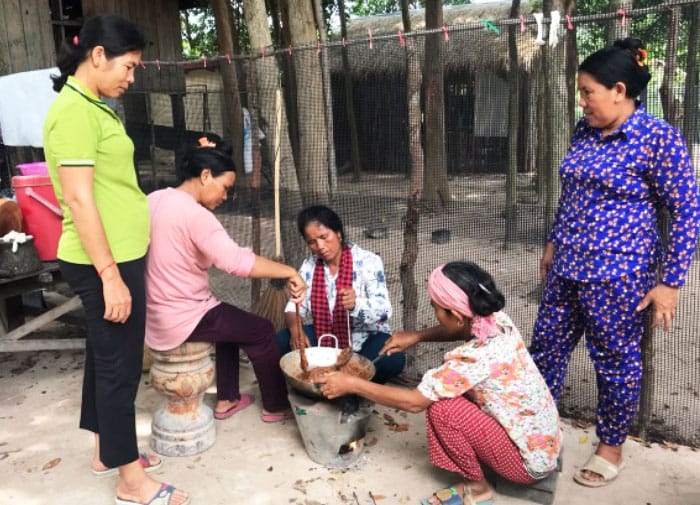
Food processing training for permaculture trainees Kampong Thom, Cambodia (SOURCE: DWAKT)
This project exemplifies a comprehensive approach to addressing critical issues such as food and water security, gender empowerment, and community health. Focusing on rural families, particularly women, it integrates vital components like hygiene, sanitation, and livelihood enhancement through sustainable agricultural practices.
Key outcomes from the initiative include training 60 farmers in permaculture and climate change adaptation, enabling them to establish food gardens and secure nutritious food year-round. Notably, 80% of these farmers achieved food security throughout the year, and 55% began earning more than USD50 monthly by selling surplus produce, highlighting improved self-sufficiency and economic empowerment.
Furthermore, the project focuses on female leadership, particularly in addressing sensitive issues such as domestic violence and child protection. Training provided to female commune leaders enables them to better advocate for and represent the rights of women and children.
The project’s broader impact on women’s empowerment is particularly notable. An independent evaluation conducted early in the year found that the project continues to significantly impact participants’ financial situations and lifestyles—see the section on Learnings to read more about the evaluation.
This project was delivered in partnership with the Australian Government through the Australian NGO Cooperation Program (ANCP), with QSA contributing $22,943 and ANCP $72,861. It involved 201 participants (185 women).
Department of Women’s Affairs (DWAP), Pursat Province
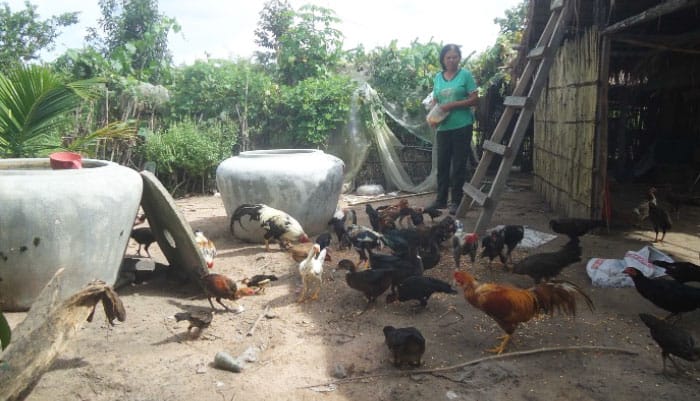
This project is pivotal in empowering women, enhancing food security, and building climate resilience. Employing permaculture techniques has transformed the lives of 80 female farmers who established home food gardens to ensure year-round food security. Small business training enables them to generate extra income through animal-raising and selling surplus produce.
The program emphasises climate-smart agriculture, which is critical in these communities that rely on a single monsoon-dependent rice crop, leaving them vulnerable to challenges like flooding, drought, and rising temperatures. By adopting techniques—such as selecting drought-resistant crops, improving irrigation and water management, and enhancing food storage and processing—participants reduce reliance on crops susceptible to climate risks.
Another significant aspect of the project is empowering female commune and village leaders. With 186 women leaders receiving equality, inclusiveness, and climate change training, they are more confident and prepared to intervene in domestic violence or child protection cases.
Training provided to commune kindergarten teachers enables them to collaborate with parents on child rights, protection, and positive parenting and makes their kindergartens safer and more engaging for children.
For the first time this year, a workshop was conducted for 360 commune council representatives, police, village leaders and safeguarding officers on the protection of women and girls from sexual and domestic violence, prevention of trafficking and unsafe migration.
This project was delivered in partnership with the Australian Government through the Australian NGO Cooperation Program (ANCP), with QSA contributing $21,862 and ANCP $75,835. It involved 433 participants (402 women and girls).
Peacebuilding, Kampong Chhnang Province
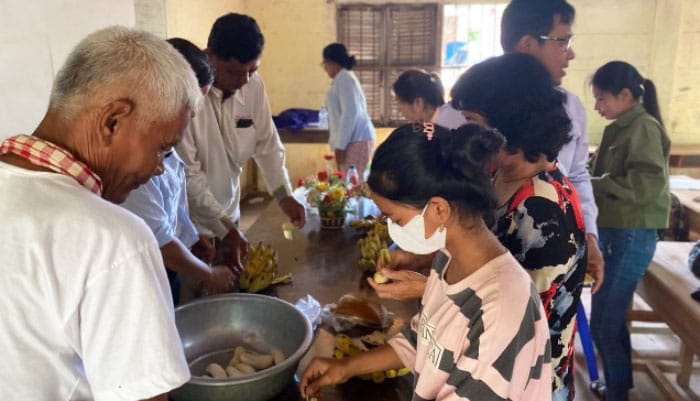
Capacity building on agriculture to a school committee as part of community peacebuilding Kampong Chhnang, Cambodia (SOURCE: KCD)
This peacebuilding project, implemented by Khmer Community Development (KCD), addresses deep-rooted inter-ethnic tensions between Khmer and ethnic Vietnamese communities in Cambodia. It focuses on education, teaching Khmer language skills to ethnic Vietnamese children and youth, many of whom had little to no access to formal education. Language training is vital to reduce the marginalisation of these children. 156 Vietnamese children have now participated in informal classes, and 80 have enrolled in public schools.
This year, a Forum Theatre performance was used to increase Khmer students’ understanding of the challenges faced by Vietnamese children attending public schools.
The project also focuses on strengthening the capacities of community leaders and schoolteachers through training in child rights, protection, and safeguarding. Appointing key community figures has been critical in securing sustained community participation.
Meetings between local authorities and Islamic and ethnic Vietnamese leaders have fostered dialogue and planning to further support education.
This project was funded by QSA through the Jan de Voogd bequest, with $57,274 allocated between July 2023 and June 2024. 504 people participated, including 488 children and young people. One-quarter of the participants were ethnic Vietnamese.
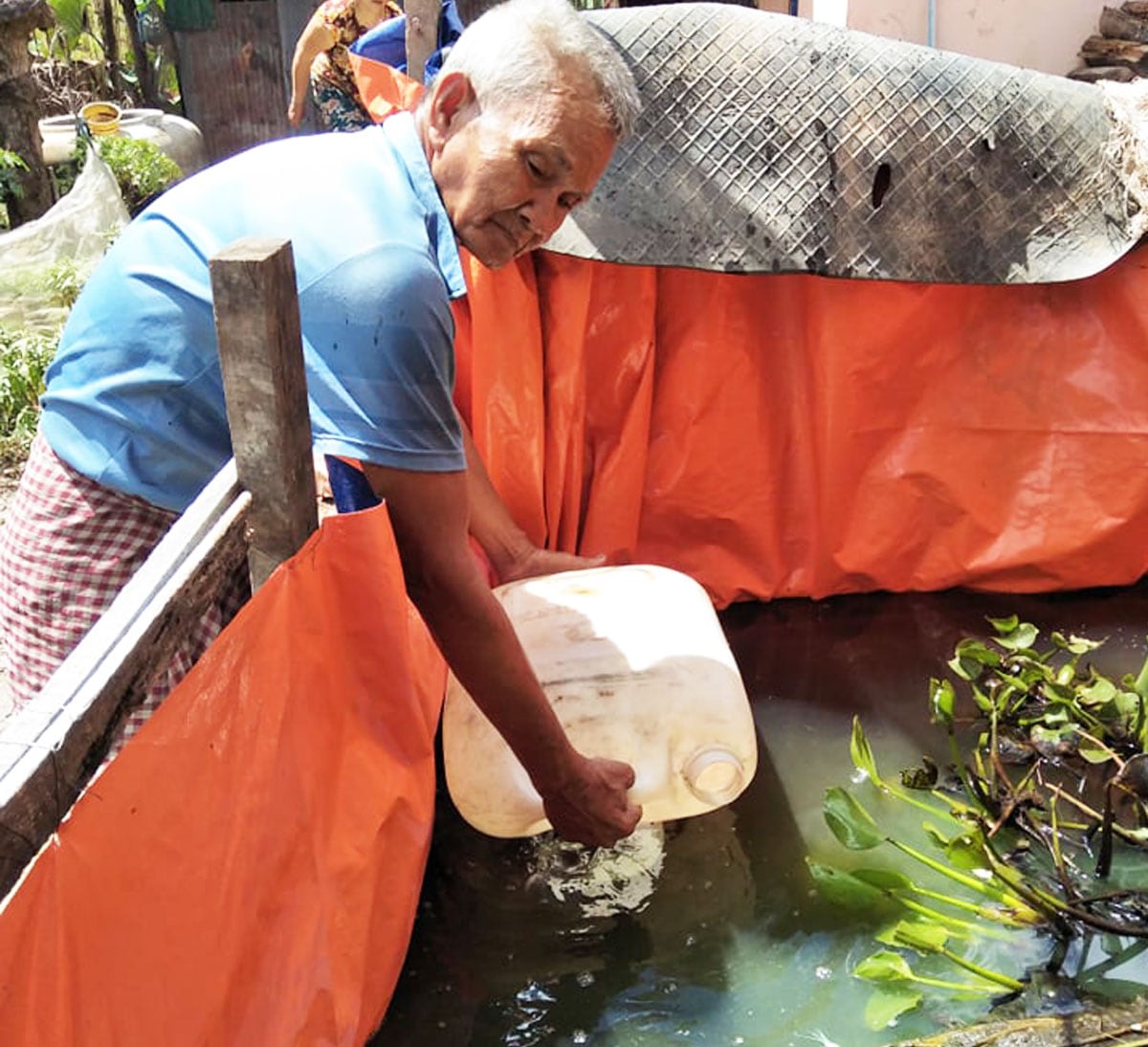
Fish farming – Cambodia.
12 months into the pandemic, how are Cambodians faring?
Last year, the COVID-19 crisis broke the downward global trend in extreme poverty set in motion since 1997. For the first time in over 20 years, we have seen a dramatic increase in extreme poverty, with up to 100 million people added to the existing population of 648 million in 2019. Many of these affected people are in countries already struggling with high poverty rates.
Cambodia has been disproportionately affected by COVID-19, despite being relatively unaffected by the health aspects during the first 12 months of the pandemic due to factors including its trade exposure and reliance on remittances from international workers.
From early on, the collapse of critical industries such as textiles and travel and the resulting economic slump led to widespread income losses from unemployment and business closures. The Asian Development Bank estimated in mid-2020 that 390,000 Cambodians would lose their jobs that year .
In rural communities characterised by abject poverty, the impact has been severe. Families have resorted to desperate coping strategies, including cutting food and health expenditure, leaving young children at home alone while parents search for work, and taking out high-risk loans to cover expenses. The pressure to migrate in search of employment for Cambodians often means undertaking unsafe and risky international travel. Workers returning due to the pandemic present a double strain for already resource-poor families who, having lost remittances income, now must feed and shelter additional family members.
In addition to lost income, rising food prices have increased food insecurity among the most vulnerable families with little or no family savings, food stores or land, or high levels of debt and insecure housing. The pandemic also exacerbated the risks for children in terms of malnutrition, dropping out of school, exposure to domestic violence, child labour and child marriage, and an increased risk of family separation and higher admissions to residential childcare institutions (orphanages).
For the first time in 2020, the Cambodian Government provided small cash allocations to the most impoverished families . The new Cash Transfer Programme reached an estimated 540,000 households formally defined as the most deserving by the IDPoor Programme .
Cambodia had only 400 cases of COVID-19 and no deaths until February 2021, when an initial outbreak in the southeast and the capital of Phnom Penh spread to many other parts of the country.
In May 2021, as the number of cases passed 20,000, the Government introduced an emergency social assistance program, providing one-time cash transfers to low-income households, those affected by lockdowns, and families with members who had contracted the virus. However, Human Rights Watch described the Government’s food aid in these determined ‘red zones’ as haphazard with relief packages being inadequate for addressing the food emergency. The aid packages consisted of 25 kilograms of rice, six bottles of soy and fish sauce, plus a carton of dried noodles per household, regardless of household size.
Two recent surveys provide an insight into how COVID-19 continues to impact already-vulnerable Cambodian families:
- QSA partner, Khmer Community Development, conducted a rapid assessment survey in May 2021 to assess the magnitude of the problems caused by COVID-19 in their target communities in Kandal Province to identify the groups most affected and the main issues facing them in terms of health and sanitation, nutrition, education, livelihoods and children’s wellbeing. 147 households were surveyed by phone.
- A World Vision survey conducted in March-April 2021 through face-to-face interviews of 621 households in Siem Reap and Preah Vihear provinces in the north of the country, Kampong Chnang (central) and phone interviews in the capital, Phnom Penh.
Livelihoods
KCD found that the target community was highly reliant on agriculture, with 56% of households depending on agriculture. Before COVID-19, around one-third of all households had a second source of income from casual day labour, but most lost this income during the pandemic. Since the pandemic, 95% reported a significant impact on their livelihoods, and one third had lost jobs and had no income. More than 50% of respondents reported relying on savings; over 50% also borrowed money from neighbours, family or friends; and 15% were unable to repay loans. In addition, more than one quarter had engaged in high-risk jobs. and 15% sent their children to work.
Results from the World Vision found survey were a little different from KCD due to the inclusion of urban households. Three-quarters of World Vision respondents lost their primary source of income or had it reduced, with the average family income per week dropping to $35, down from $63 before the pandemic. Households in Phnom Penh were more affected by the loss of income than those rural areas, probably due to more severe closures in the capital, with 95% reporting their income had been lost or reduced.
Food security and nutrition
KCD found that more than 25% of households were only eating two meals per day. Nevertheless, 80% of households reported they had not reduced the quality and quantity of food because they had savings and access to protein and green vegetables from home food gardens. 80% had one week of food stock or less in their homes.
KCD respondents retained access to nearby local markets during COVID-19 restrictions, but due to price increases of up to 40%, they had to reduce their spending on food.
Reduced food security was evident in World Vision’s findings, with only half of the families having sufficient income to cover food expenses fully and 38% reducing spending on food. For example, in Siem Reap, average household food spending declined from $25 per week to only $16 per week. Overall, 44% of respondents had no food stocks at home, rising to 76% in Phnom Penh residents who had no access to home gardens. In response, 70% now rely on less preferred and less expensive food (probably less protein and more rice), 50% have reduced portion sizes, and 34% have reduced the number of meals per day.
Education
In response to COVID-19 restrictions, Cambodian schools have been closed almost continuously since March 2020, except for a short period in early 2021.
Government schools have provided remote teaching via online classes, YouTube and TV broadcasts. However, KCD’s survey found that only 40% of families could provide their children with a device such as a phone and a tablet to help them with school work, slightly higher than World Vision’s findings (32%).
Still, many students have no access to these programs without technology at home, including internet access or television, let alone study materials. In both surveys, around 30% of respondents expressed concern about their children missing school and not learning during school closures. In addition, World Vision found that while 50% of households had access to a smartphone, 59% lacked internet access at home, 47% of parents and carers reported not having time to support their children, and only 2.7% had access to a computer.
What next?
KCD’s research has informed the direction of their assistance programs in target communities, and several of the recommendations are already integrated into their work. For example, KCD is developing online resources on agriculture to improve food security, provide equipment and advice to create home food gardens and help families build food processing capabilities. Volunteers are being trained in local communities to provide technical support to enable families in the target areas to access these online resources. KCD will also work with local authorities to provide emergency food supplies during lockdowns for vulnerable people, including pregnant and lactating women and children under five years.
While Cambodians have largely complied with Government’s sometimes harsh lockdown measures, this has been difficult for many vulnerable communities. For example, during the extended lockdown in April-May 2021, food transport vehicles were banned from entering Phnom Penh, resulting in food shortages and dramatic cost increases. Fortunately, those in rural areas have access to local produce, but with incomes slashed, they have reduced spending on food.
In KCD’s target communities and other project areas supported by QSA, reports indicate the benefits of permaculture and home gardens. Even when faced with job losses and reduced incomes, households in these areas have maintained food security or lessened the impact of food shortages and price rises with homegrown fruit and vegetables.
Cambodia launched a very effective vaccination program, mainly with support from China, and 36% of the total population is now fully vaccinated , one of the highest rates in the world.
While Cambodia has so far managed to avoid the worst of the health impacts, it’s clear the economic and social effects of the pandemic will be profound and long-lasting. Moreover, in a country with pre-existing socioeconomic vulnerabilities and nascent government social protection and support systems, the pandemic will exacerbate vulnerabilities, with more people slipping below the poverty line leading to an increase in associated health, nutrition, education and social protection risks.
It’s encouraging to see that families supported by QSA partners to implement home gardens with new permaculture techniques have fared relatively well during the pandemic. KCD is now expanding its food security and income generation programs, responding to families who want to establish food gardens and food production and income generation activities, including fish farming and mushroom growing.
1 Kharas and Dooley, Extreme Poverty in the Time of COVID-19, May 2021 https://www.un.org/development/desa/dspd//home6/zifboxc4/public_html/staging/qsa//home/qsaorgau/public_html/wp-content/uploads/sites/22/2021/05/KHARAS_paper1.pdf
2 Asian Development Bank, ADB Loan for Cambodia’s COVID-19 Response, 2 September 2020 https://www.adb.org/news/videos/adb-loan-cambodia-covid-19-response
3 Unicef, COVID-19 Cash Transfer Programme helping families with the most basic needs, 19 June 2020 https://www.unicef.org/cambodia/stories/covid-19-cash-transfer-programme-helping-families-most-basic-needs
4 The IDPoor Programme is part of the Cambodian Government’s plan to reduce poverty and support socioeconomic development. https://www.idpoor.gov.kh/about/process
5 Human Rights Watch, Cambodia: Lockdowns Hit Low-Income Families Hard, 8 June 2021 https://www.hrw.org/news/2021/06/08/cambodia-lockdowns-hit-low-income-families-hard
6 Khmer Community Development, Preliminary Findings: KCD Needs Assessment During COVID-19 Pandemic, May 2021 (unpublished)
7 World Vision International Cambodia, Survey on the Impact of COVID-19 on Vulnerable Households in Cambodia, 27 May, 2021 https://www.wvi.org/publications/research/cambodia/survey-impact-covid-19-vulnerable-households-cambodia
8 Out World in Data https://ourworldindata.org/covid-vaccinations?country=~KHM (8 August 2021)
QSA has been working with development partners in Cambodia since 1979 focusing on building food and water security and livelihoods, while at the same time promoting empowerment of women, protection of children and other vulnerable groups and environmental protection. We currently support four projects in three rural locations.
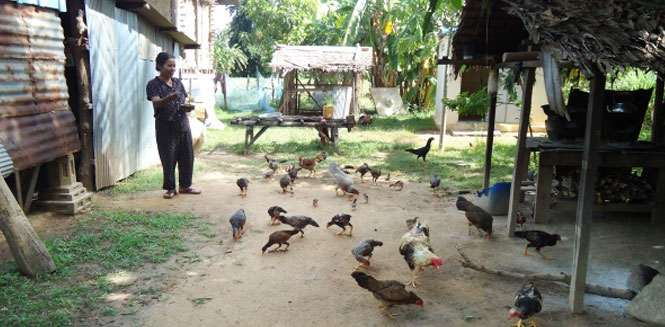
Keeping healthy chickens. Photo PMSA
Current projects
Increasing women’s empowerment and income generation opportunities in Pursat Province.
QSA works with the Department of Women’s Affairs in Pursat to enhance women’s economic empowerment, encourage women in elected public roles, and address the impact of climate change through permaculture agriculture. Training and basic equipment is provided to enable women to achieve year-round food and water security. Education is also provided in equity and inclusiveness, environmental awareness and child protection. In 2020/21, 80 female farmers will receive training in permaculture techniques and small business, enabling them to make their food gardens more productive, increase food security and generate income from the sale of surplus produce.
Community livelihoods development with agricultural training in four communes in Kandal Province.
Project partner Khmer Community Development works in target villages for at least 3 years, helping communities identify their needs, providing training in organic agricultural techniques and nutrition, income generation, gender issues, disability support and child safety. Livelihoods development results from the sale of surplus produce, support for a rice bank, a cow bank, several savings and micro-credit banks. The project also includes activities that promote social peace and environmental integrity. In 2021/1, almost 300 villages will join the project.
Enhanced food and water security, and opportunities for income generation in rural Kampong Thom.
This project addresses food and water security and increased livelihoods for rural families. Training is provided by the Department of Women’s Affairs in Kampong Thom, in permaculture, health, hygiene and sanitation, and training in leadership is provided for elected women leaders. In 2020/21, training will be provided to 80 farmers, most of them women, in 4 villages who often do not produce enough rice to meet the needs of their family and who lack the expertise to make their land more productive. Farmers will be trained in permaculture techniques, small business establishment and maintenance, nutrition, anti-domestic violence and trafficking, hygiene and sanitation. They will also receive seeds, tree seedlings, and basic equipment to help establish home gardens. Selected households will receive toilets or a pump well to assist in watering their vegetables, and women elected representatives will receive training the help them in their roles.
Poverty alleviation and development of business capacity in Pursat Province
Bunrany Hun Sen Development Center (BRHS) provides vocational training in Pursat and surrounding villages to produce and market quality handicrafts, enhancing vocational skills, reducing poverty and developing business capacity. BRHS operates a commercial outlet for locally-made handicrafts, and assists farmers (mostly women) to source local materials and develop their own micro-enterprises to supplement their agricultural incomes. In 2020/21, 35 producers will work at the Centre on sewing and weaving handicrafts, and training will be provided to 76 farmers to develop skills in sewing and weaving, mushroom growing and palm sugar production. By purchasing items produced in local villages, the Centre provides an income for farmers in rural areas with limited land who need to supplement their low income.
Meet some of the project participants
Permaculture techniques improve family livelihoods in Pursat
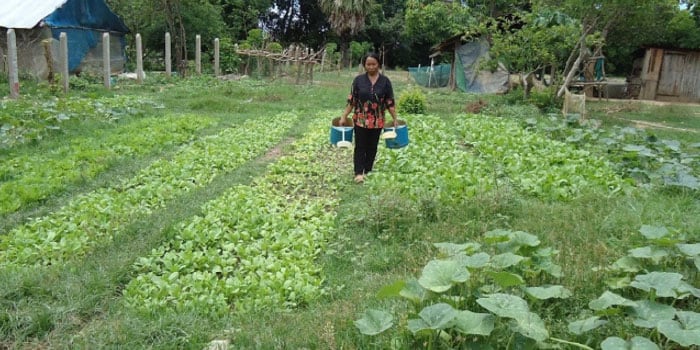
Mrs Hing attended permaculture training in Pursat in 2018-2019 (provided by Department of Women’s Affairs) where she learnt to use compost and natural insecticides to grow vegetables, fruit trees and rice, as well as new chicken-raising methods. With water from a new well, she now grows vegetables and raises chickens to feed her family, and has a surplice to sell in the local market. With this additional income, she has built a brick bedroom and bathroom on her house, and buy a motorbike. The family now has enough food to eat year-round, and their nutrition and health has improved. She has also planted trees to provide shade and reduce dust, protect from flooding and storms, and provide firewood.
Handicrafts
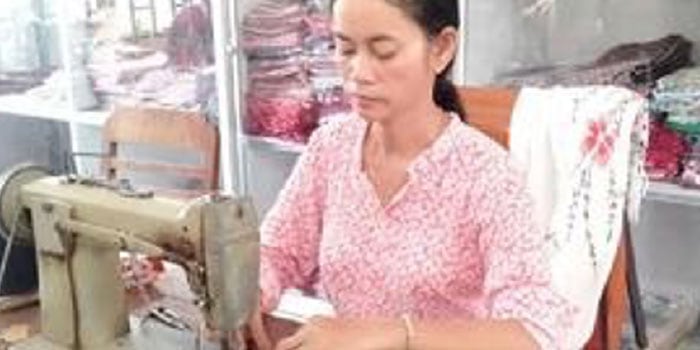
In an area where farming communities have few opportunities to supplement their modest incomes, Bunrany Hun Sen Development Centre provides vocational training, largely for women, in a range of handicraft skills, as well as a sales outlet. The aim is to make the Centre profitable and self-sufficient, so it can offer employment and a market for locally produced handicrafts.
During the COVID-19 crisis some of the sewing resources were redirected towards making masks for a local school.
Inter-ethnic livelihood development in the border area of Kandal Province
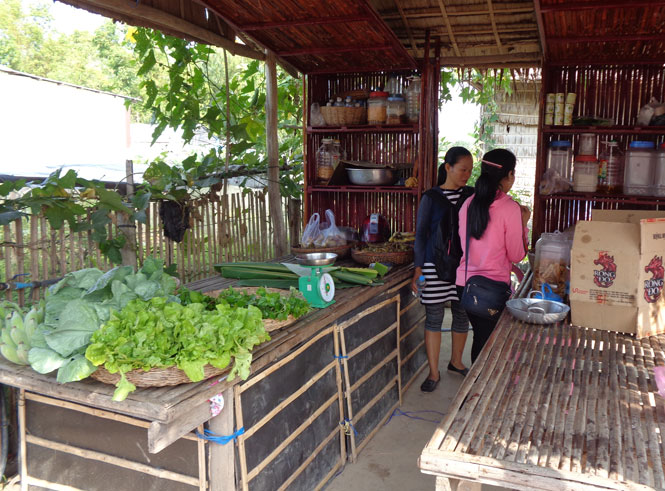
In an area close to the Vietnam border, community-based organisations are assisted by Khmer Community Development to grow vegetables organically, but farmers have found it difficult to sell their produce because there was no market in the area. The community came up with a solution – to create their own market. In this small shop, locally grown organic produce is sold, generating much needed additional income for local farming families. Some families have reported up to 30% increase in their income through this community-based project that also operates a cow bank, a rice bank and savings and credit groups.
Enhanced food and water security for three rural communities in Kampong Thom Province
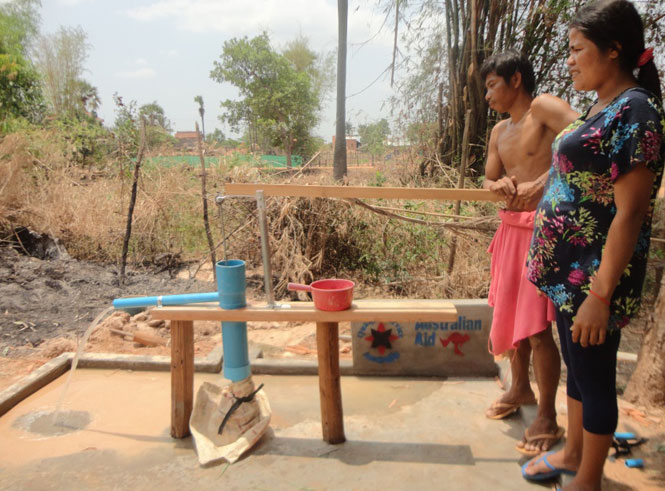
Mr Cheut was one of the farmers who received training from Department of Women’s Affairs to growing vegetables and fruit trees. He established a home food garden, growing 5-10 vegetables, herbs and fruit trees, providing his family with three meals a day, instead of one, and achieving year-round food security. The family now sells surplus vegetables, enabling them to improve living conditions with household repairs and basic needs like clothes. A well has been constructed to provide safe water for domestic use and irrigation, and the family has received a toilet constructed near their house.
Helping the disabled involved in development projects in Kandal Province
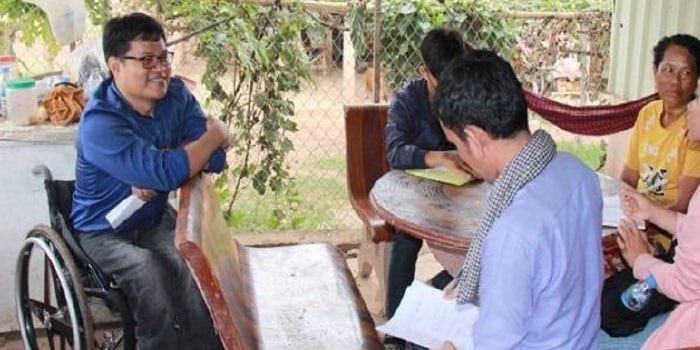
Services available in Cambodia for people living with disabilities are very limited, and often their needs are not met. Relying almost entirely on their families, most are unable to go outside. QSA partner Khmer Community Development has collaborated with Phnom Penh Center for Independent Living to gather information about the situation for disabled people in relation to education, mobilization, social participation, health and employment, and then to motivate them to participate in social events, and get involved in KCD Projects.
Growing mushrooms in Pursat enables landless family to achieve year-round food security and increase their income
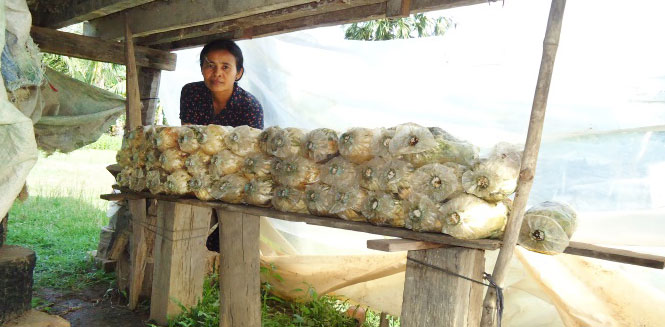
In a remote village in Pursat Province, Mrs Pin and her family lived on a small amount of land, and had no land to grow rice. Her husband was forced to work away from home. Mrs Pin joined villagers selected to learn how to grow mushrooms (with Bunrany Hun Sen Development Centre), a good source of nutrition, and a way to generate additional income. Mushroom growing suited Mrs Pin as they need only a small amount of land. When she had surplus produce, she would sell it in the local market, earning US$50 to $80 per day – a huge difference for the family. The family now has enough food to eat three meals per day all year round, they bought a motorbike to deliver produce to the markets, and have recently built a latrine.
QSA working to support its project partners through the COVID-19 pandemic
CAMBODIA
Project partner staff traveling to isolated villages to spread the word about COVID-19. In conjunction with Commune and Village Council leaders, teams have visited communities distant from the main towns (and often lacking communications) to provide education about COVID-19, protective materials, and food aid. This is being funded by QSA and DFAT, through Australian NGO Cooperation Program Funding
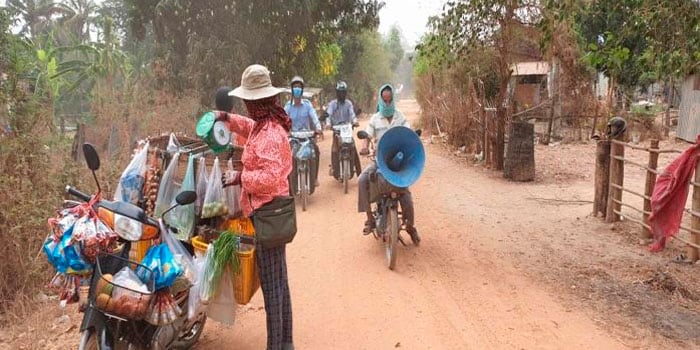
Teams travelled considerable distances by motorbike, using megaphones to spread information about COVID-19 in isolated communities.
Information about hand-washing and social distancing was provided, along with masks, soap and hand sanitiser to help reduce the spread of COVID-19.
Photo credit DWA Pursat.
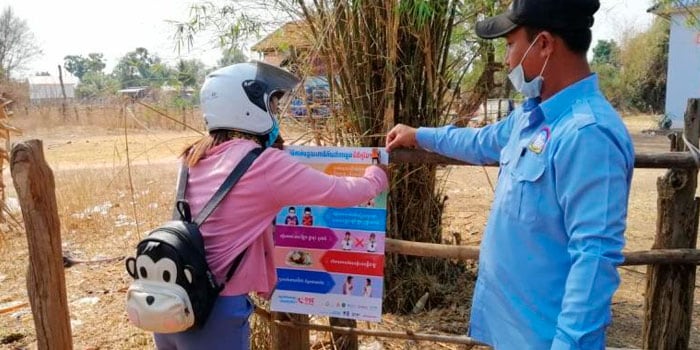
Leaflets and posters provided information to isolated villagers in local language and with illustrations for those with poor literacy.
Photo credit DWA Pursat.
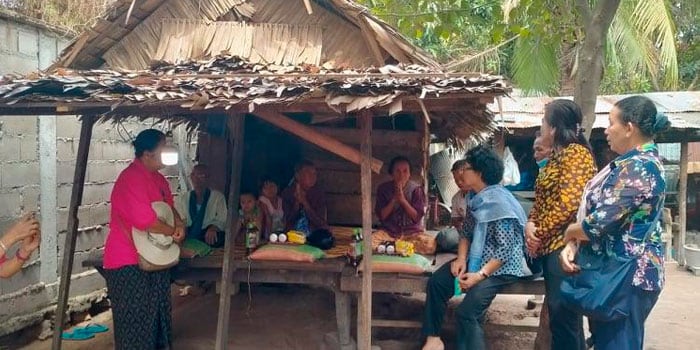
Many families lost income when local enterprises, like cassava factories closed, and migrant workers returned from other regions and countries. Until the annual rains arrive, they are unable to grow food, so rice was provided to vulnerable families.
Photo credit DWA Pursat.
Khmer Community Development (KCD)Khmer Community Development (KCD)
Goal: Target populations reduce the risk of COVID-19, manage their fear from information that they get through social media, improve hygiene through washing hands and increase food production at home.
Objectives:
- Hygiene promotion in the target areas
- Increasing awareness about COVID-19
- Improving home food production
KCD, also funded by QSDA and DFAT, has distributed vegetables seeds to households and encouraged field staff to create home gardens at their houses to serve as role models for the villagers. In order to encourage them more, KCD has established the competition between field staff home gardens with prizes like seeds, soaps, sanitizers and masks.
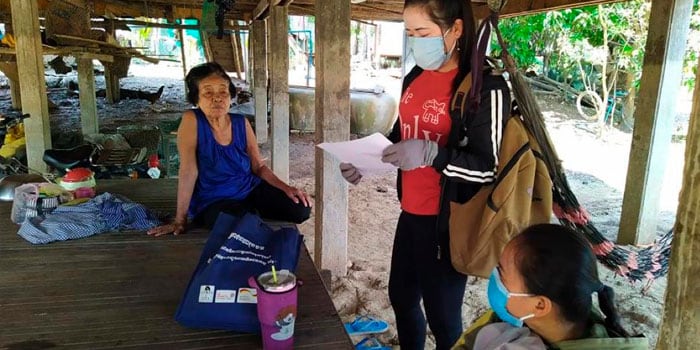
It was a challenge to conduct awareness events because of social distancing that made it impossible to gather in one place for training, so KCD staff and volunteers had to go house by house, wear masks and gloves as well as practice social distancing, which was time and effort consuming.
Photo credit KCD.
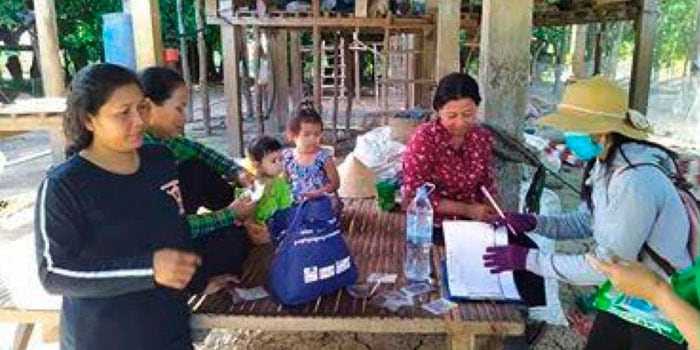
One month after the initial training, KCD staff and volunteers visited households to check they were implementing the hygiene practices.
KCD supplied soap, hand sanitizers and masks, and produced posters and two videos on handwashing.
The staff conducted awareness promotion on hygiene which focused on proper hand washing.
Photo credit KCD.
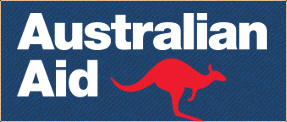
QSA acknowledges the support of the Australian Government through the Australian NGO Cooperation Program (ANCP).
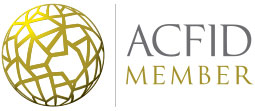
QSA has signed onto the Australian Council for International Development Code of Conduct See www.acfid.asn.au for details.
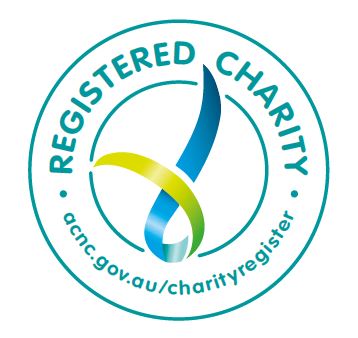
QSA’s policies
If you would like to understand more about QSA’s approach to its development work, this website shows you some details of the various projects currently being supported, and for the theory behind …
If you have a grievance, complaint or dispute find out about our procedures here.
